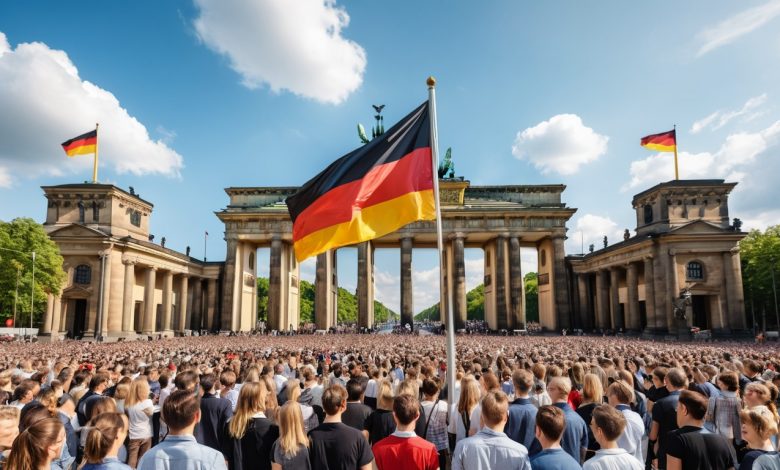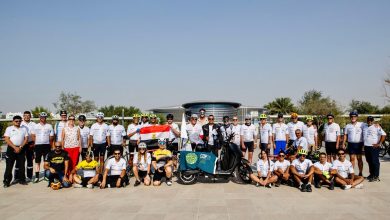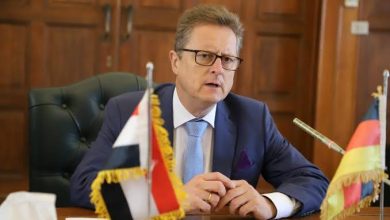Tag der Deutschen Einheit: Celebrating the Day of German Unity

October 3rd is a significant day in Germany’s history, known as “The Day of German Unity” (Tag der Deutschen Einheit), which serves as the country’s National Day. This annual celebration commemorates the reunification of Germany in 1990, following decades of division after World War II.
The Division and Reunification of Germany
After the end of World War II in 1945, Germany was divided into two separate states: West Germany (Federal Republic of Germany), a democratic nation allied with the West, and East Germany (German Democratic Republic), under Soviet control with a communist regime. For nearly 45 years, the country was split, with the Berlin Wall symbolizing this stark division between the two halves.

The Berlin Wall, built in 1961, was not only a physical barrier but also a representation of the ideological divide between the Eastern Bloc and the Western Bloc during the Cold War. However, by the late 1980s, political shifts and increasing public demand for freedom led to a series of events that changed the landscape of Europe. The most crucial moment came on November 9, 1989, when the Berlin Wall was finally opened, leading to an unstoppable momentum toward German reunification.
The Official Reunification in 1990
On October 3, 1990, East and West Germany were formally reunited to become one nation: the Federal Republic of Germany. This marked the culmination of a series of diplomatic negotiations between the world’s leading powers, including the Soviet Union, the United States, France, and Great Britain, which had held influence over post-war Germany.
This day is a symbol of Germany’s overcoming of internal division and reflects the hope, resilience, and solidarity of the German people during a time of monumental change. It also signifies the return of Germany as a unified, sovereign nation in Europe, with Berlin once again serving as its capital.
Celebrations of the Day of German Unity
Every year on October 3rd, Germans across the country celebrate this national holiday with events and activities in cities and towns, with the largest celebrations taking place in Berlin. The famous Brandenburg Gate, a symbol of Germany’s division and reunification, is the focal point of the day’s events, which include musical performances, cultural exhibitions, fireworks, and speeches from political leaders.
The day is also an opportunity for Germans to reflect on the values that unite them as a nation, such as freedom, democracy, and social justice. The celebrations are not just about commemorating past achievements but also about reaffirming Germany’s commitment to these ideals as it moves forward in the global community.
Challenges and Progress Post-Reunification
While the reunification of Germany in 1990 was a moment of national pride, the process of integrating the two Germanys presented significant challenges, particularly in terms of economic and social disparities. The East had lagged behind the West in terms of economic development due to the centralized, planned economy of the communist regime.
For many years after reunification, the German government implemented major infrastructure projects and social programs to help close the gap between the East and West. Though it was a difficult and costly process, the nation has made significant progress in building a more unified and prosperous country. Today, Germany is considered one of the world’s strongest economies and plays a leading role in the European Union and on the global stage.
Looking Forward
The Day of German Unity is not just a day to look back on Germany’s achievements in reunification, but also a day to think about the future. Germany continues to face challenges, from maintaining economic equality across regions to addressing modern global issues such as climate change, migration, and international security.
Nonetheless, the spirit of unity that brought the country together in 1990 remains a guiding force for the future. Germany’s commitment to peace, diplomacy, and international cooperation is evident through its leadership in European and global affairs.
Conclusion
Germany’s National Day, celebrated on October 3rd, is a reminder of the power of unity and the importance of overcoming division through solidarity and democratic values. It marks the day when the country came together after decades of separation, proving that even the most difficult divisions can be healed with determination and a shared vision for a better future. The Day of German Unity continues to inspire Germans and people around the world, symbolizing hope, reconciliation, and progress.



